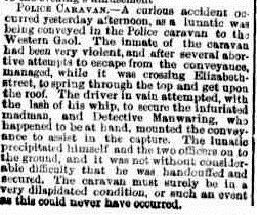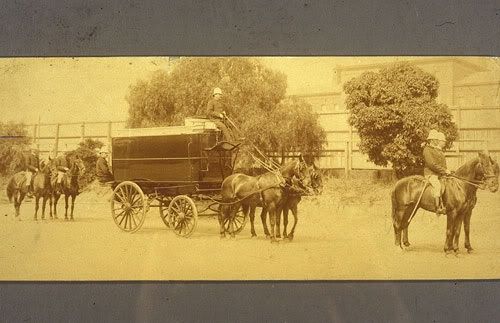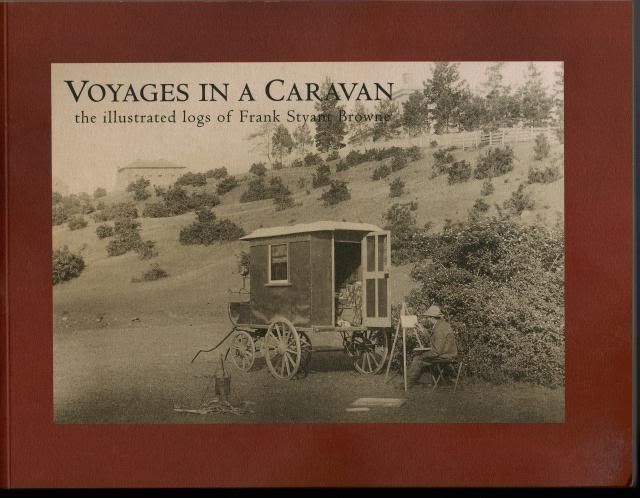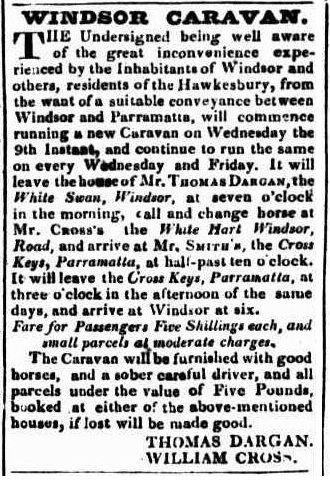Post by Don Ricardo on Apr 18, 2011 20:30:41 GMT 10
Evening all,
Cobber has thrown down the gauntlet.



Take this, sir! ;D ;D ;D
In the Australian colonies of the 1800's and the early 1900's the word 'caravan' was used in a variety of ways. They included references to camel caravans carrying merchants and their goods through the deserts of Central Asia, the Middle East and Africa. They also included references to a parade of people or vehicles moving from A to B in a long line.
However, 'caravan' was also used to refer to an enclosed horse-drawn vehicle - presumably accessible via a hinged door - used to convey people or goods, or both. Sometimes the 'caravan' included living quarters, and other times not, but in the 1800's the vehicles were always or almost always 'working vehicles' not 'holiday vehicles'.
Following is an article from the Melbourne Argus newspaper on 22 May 1858 (p 5), describing an incident involving a 'police caravan' in the centre of the town of Melbourne, which at that point had only been founded 23 years before.

(Source: National Library of Australia nla.gov.au/nla.news-article7294977 )
While making rather amusing reading today, this incident must have been rather frightening for all concerned, not the least being the poor unfortunate 'madman'.
The fact that the article describes the caravan as a 'conveyance', and suggests that it must have been dilapidated, indicates that it is referring to the vehicle being used to transport the prisoner, not a parade of people or similar.
Don Ricardo
Cobber has thrown down the gauntlet.




Take this, sir! ;D ;D ;D
In the Australian colonies of the 1800's and the early 1900's the word 'caravan' was used in a variety of ways. They included references to camel caravans carrying merchants and their goods through the deserts of Central Asia, the Middle East and Africa. They also included references to a parade of people or vehicles moving from A to B in a long line.
However, 'caravan' was also used to refer to an enclosed horse-drawn vehicle - presumably accessible via a hinged door - used to convey people or goods, or both. Sometimes the 'caravan' included living quarters, and other times not, but in the 1800's the vehicles were always or almost always 'working vehicles' not 'holiday vehicles'.
Following is an article from the Melbourne Argus newspaper on 22 May 1858 (p 5), describing an incident involving a 'police caravan' in the centre of the town of Melbourne, which at that point had only been founded 23 years before.

(Source: National Library of Australia nla.gov.au/nla.news-article7294977 )
While making rather amusing reading today, this incident must have been rather frightening for all concerned, not the least being the poor unfortunate 'madman'.
The fact that the article describes the caravan as a 'conveyance', and suggests that it must have been dilapidated, indicates that it is referring to the vehicle being used to transport the prisoner, not a parade of people or similar.
Don Ricardo



 .
.

